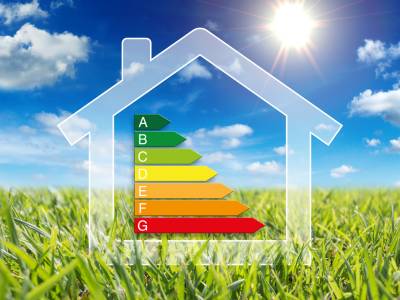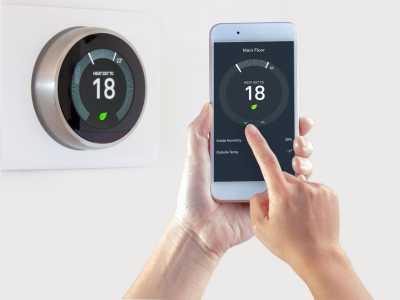When it comes to keeping your home cool during the hot summer months, having an efficient HVAC system is crucial. Not only does it help you save on energy costs, but it also reduces your carbon footprint and helps the environment.
In this blog post, we will discuss the most efficient AC systems for climates with warmer weather, so you can make an informed decision when it comes to cooling your home.

Why is an Efficient HVAC System Important?
Before we dive into the most efficient AC systems, let's first understand why having an efficient HVAC system is important.
Energy Savings
One of the main reasons to invest in an efficient HVAC system is to save on energy costs. According to the U.S. Department of Energy, heating and cooling account for about 48% of the energy use in a typical U.S. home. By upgrading to an energy- efficient AC system, you can significantly reduce your energy consumption and save money on your utility bills.
Environmental Impact
Traditional air conditioning systems use a lot of energy, which contributes to greenhouse gas emissions and harms the environment. By switching to an energy-efficient AC system, you can reduce your carbon footprint and help protect the planet.
Improved Comfort
Efficient HVAC systems are designed to provide consistent and even cooling throughout your home. This means no more hot spots or cold spots, and a more comfortable living environment for you and your family.
Types of Efficient AC Systems
Now that we understand the importance of an efficient HVAC system, let's take a look at the different types of AC systems that are best suited for warmer climates.
Central Air Conditioning
Central air conditioning is the most common type of AC system used in homes. It works by cooling air in a central location and then distributing it throughout the house through a system of ducts and vents. Central air conditioning systems are known for their energy efficiency, as they use less energy compared to other types of AC systems.
Ductless Mini-Split Systems
Ductless mini-split systems are a great option for homes without existing ductwork. They consist of an outdoor unit and one or more indoor units that are mounted on the wall or ceiling. These systems are highly efficient, as they allow you to control the temperature in individual rooms, reducing energy waste.
Geothermal Heat Pumps
Geothermal heat pumps use the earth's natural heat to cool and heat your home. They work by transferring heat from the ground to your home in the winter and transferring heat from your home to the ground in the summer. This process is highly efficient, as it uses the earth's natural energy instead of relying on electricity.
Evaporative Coolers
Evaporative coolers, also known as swamp coolers, are a popular choice in dry and hot climates. They work by pulling in hot air from outside and passing it through wet pads, which cools the air before it is circulated throughout the house. These systems are highly efficient, as they use less energy compared to traditional air conditioning systems.

Features to Look for in an Efficient AC System
When shopping for an efficient AC system, there are a few key features to look for to ensure you are getting the most energy-efficient option.
Energy Star Certification
Energy Star is a government-backed program that certifies products that meet strict energy efficiency guidelines. When looking for an efficient AC system, make sure it is Energy Star certified to ensure it meets the highest standards of energy efficiency.
Variable Speed Compressor
A variable speed compressor is a feature that allows the AC system to adjust its speed based on the cooling needs of your home. This means the system will use less energy when the temperature is mild and more energy when it is hot, resulting in significant energy savings.
Programmable Thermostat
A programmable thermostat allows you to set a schedule for your AC system, so it only runs when needed. This feature can help you save on energy costs by avoiding unnecessary cooling when you are not at home. (Learn more about programmable and smart thermostat benefits and features here.)
Other Ways to Make Your AC System More Efficient
Aside from investing in an efficient AC system, there are other ways to make your cooling system more energy efficient.
Regular Maintenance
Regular maintenance is crucial for keeping your AC system running efficiently. Make sure to schedule annual maintenance with a professional to ensure your system is running at its best. (Learn more about our Peak Maintenance Plan covering HVAC, Plumbing, and Electrical.)
Proper Insulation
Proper insulation is key to keeping your home cool and reducing energy waste. Make sure your home is properly insulated to prevent cool air from escaping and hot air from entering.
Use Ceiling Fans
Using ceiling fans can help circulate cool air throughout your home, reducing the workload on your AC system. This can result in energy savings and a more comfortable living environment.
Conclusion
Investing in an efficient AC system is a smart choice for any homeowner, especially in warmer climates. Not only does it help you save on energy costs, but it also reduces your carbon footprint and improves the comfort of your home. When shopping for an efficient AC system, make sure to look for Energy Star certification, a variable speed compressor, and a programmable thermostat. And don't forget to schedule regular maintenance and properly insulate your home to maximize energy efficiency. With these tips in mind, you can keep your home cool and comfortable while also being environmentally conscious.
If you're ready for a new HVAC unit installation, benefit from our expertise choosing the right option for your home. Schedule an appointment online or give us a call at (855) GET-ENGLE
